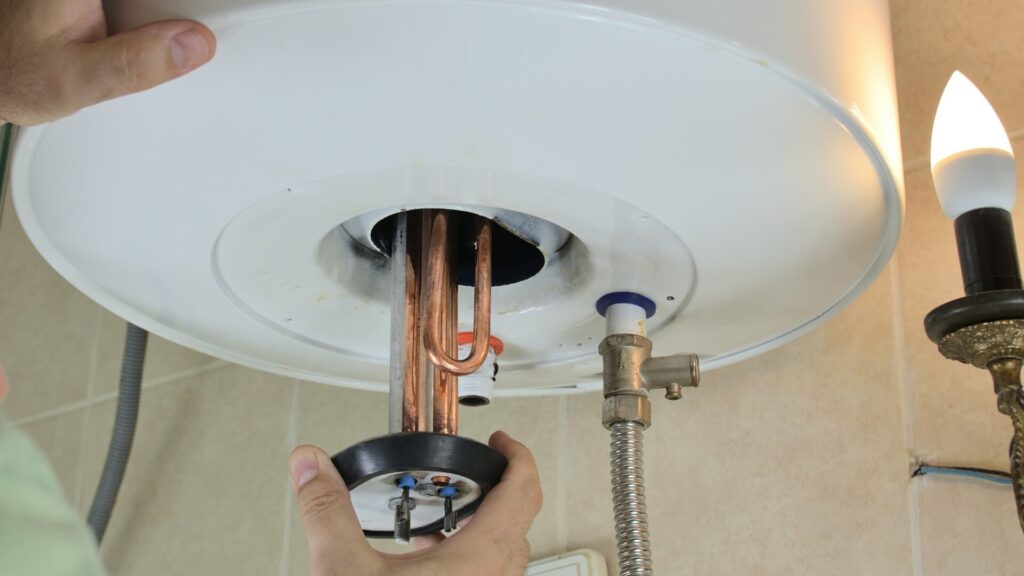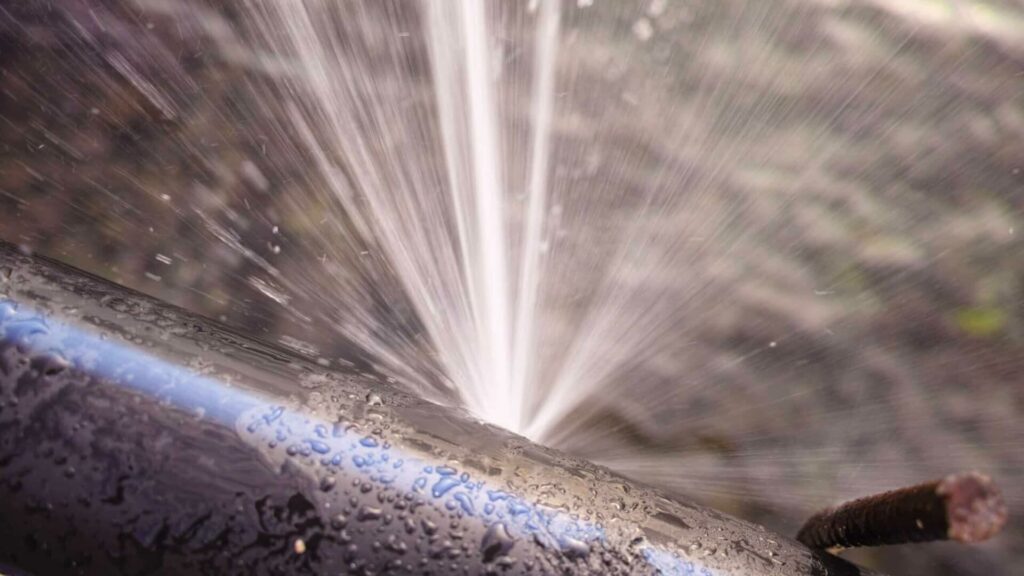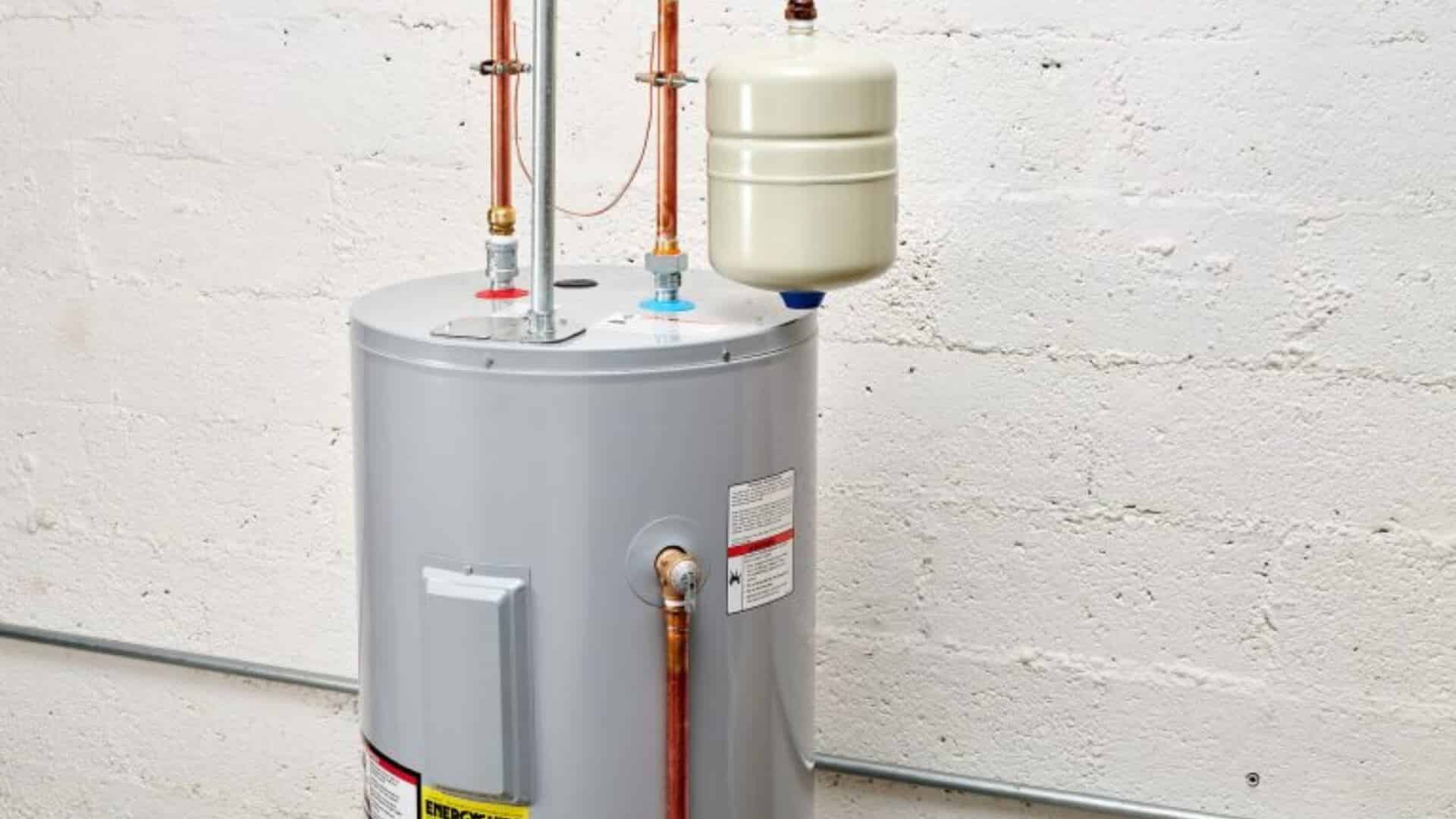

A heater needs to heat the water. But not all water heaters are created equal therefore knowing how long it takes for their supply to be depleted is crucial. Regarding how quickly they work, the most popular water heater tank size is 40 gallons, which is what we’ll be using here. The larger the heater, the longer it takes to warm up the water.
Water Heater Type and Size | Initial Heating Time | Recovery Time |
30-Gallon Gas | 20-30 minutes | 15-20 minutes |
40-Gallon Gas | 30-40 minutes | 20-25 minutes |
50-Gallon Gas | 40-50 minutes | 25-30 minutes |
30-Gallon Electric | 45-60 minutes | 30-35 minutes |
40-Gallon Electric | 60-80 minutes | 35-45 minutes |
50-Gallon Electric | 145-150 minutes | 60-70 minutes |
Tankless (Gas/Electric) | Instant | N/A |
A gas tank water heater is more efficient and heats water faster than an electric one. They burn natural gas as fuel and use large burners on the bottom of the tank to heat the water in the tank. How quickly a gas tank heater can get hot is determined by the temperature it’s set to and the amount of cold water it has to warm.
Gas water heaters are known for their efficient heating capabilities. Here’s what to expect:
A gas hot water heater with an internal diameter of 36 inches can hold up to 90 gallons of hot water. It will take a unit with a capacity between 40 and 50 gallons, about 30 to 50 minutes to warm up. A bigger tank size – 80-gallon gas water heater will take 60 to 70 minutes to heat up. This is only an estimate and will vary depending on age and model.
Unlike gas water heaters, electric water heaters take longer to warm up. The water in these devices is heated by submerged electrical heating elements within the tank. They take roughly twice as long to get hot. The time it takes is determined by several factors, including the wattage of the heating element and the temperature set for the water heater.
Electric water heaters generally take longer to heat up due to their heating element design:
It will take approximately one hour to an hour and 20 minutes for a 40-gallon, 5500-watt electric hot water heater set to 120 degrees to heat up. A 50-gallon electric heater will take around an hour and 45 minutes to an hour and 50 minutes to reach the desired temperature. It will take around 2 hours for a large, 80-gallon electric tank water heater to come up to temperature.
Tank water heaters, sometimes called demand-type or instantaneous water heaters, only deliver hot water when required. As a result, they don’t have the standby energy losses that storage water heaters do so you may save money.
Tank water heaters generally deliver hot water at a rate of 2–5 s (7.6–15.2 litres) per minute. Gas-powered tank water heaters have more excellent flow rates than electric ones. However, even the biggest, gas-fired version may not be able to meet the demands of a large home during simultaneous, multiple uses.
For example, if you take a shower and run the dishwasher simultaneously, your tankless water heater will be pushed to its limits. To overcome this problem, install two or more tank water heaters. You may also add separate tank water heaters for appliances that use a lot of hot water in your house, such as a washing machine or a dishwasher. However, extra water heaters will cost more and may not be worth it in terms of value.
Tankless heaters provide nearly instant hot water, typically taking:
Flow rates typically range from:
Tankless water heaters use more water than tank-type water heaters. If you have a tankless water heater, you already know that getting hot water with one takes longer than a traditional storage tank model. Tankless water heaters usually take 10 to 20 seconds to reach the desired temperature. However, you have a greener option available to you!
You are running water down the drain while you wait for the hot water to arrive. What a waste it is to lose water to save energy. However, there is something you can do about it. The cold water enters the heat exchanger with a tank heater. This water might be pretty chilly if you reside in a colder region. It may take some time for the liquid to warm up. Because the water is flowing through the part as it warms up, the initial water that comes into your home is cold water from the pipes and then lukewarm water that passes through the component before it gets hot enough.
Solar water heaters, sometimes known as solar domestic hot water systems, are cost-effective for generating hot water for your home. They can be used in any weather and require no fuel.
RV water heaters have special considerations:
Let’s consider the factors that affect water heating time.
Water heaters are rated with a first-hour delivery (FHD) rating. The FHD indicates how many gallons of hot water the heater can supply in an hour once it heats up. GPH is used to express FHD rates (GPH). A high FHD rate means you’ll have more hot water sooner compared to a unit with a lower FHD rate. For a 50-gallon unit, 60 to 80 GPH is ideal.
The water heater recovery time is how many gallons of hot water the device can provide each hour while in use. It informs you how quickly the it can refill (recover) cold water and warm it up. A unit with a high recovery rate will heat your cold water faster since it takes less time. Even if you’re using a lot of hot water at once, a high-recovery model will be able to heat the initial chilly water quickly.
A water heater’s power source (gas or electricity) significantly influences how quickly it heats the water. An electric water heater is notorious for taking longer to warm water. This is because electrical heating elements are less efficient than gas burners.
A 50-gallon gas water heater might have an FHD rate of 80 to 90 GPH, but a 50-gallon electric water heater has an FHD rate of around 58 to 66 GPH. So while you may wait up to 30 minutes for an average gas tank to heat all the water in the tank, an electric version will need twice as long.
Storage water heaters have tanks that store and heat water. Tank hot water heaters don’t have storage tanks; instead, they heat the water as it comes out of the tap. There’s a significant difference in how long it takes these two systems to heat water. It might take anywhere from 30 minutes to one hour and 15 minutes for a storage tank to come up to temperature.
The amount of water a storage water heater can hold significantly affects how rapidly it heats the water. Storage water heaters can typically accommodate between 30 and 80 gallons of water. Because there are fewer gallons to heat, smaller tanks heat the water faster (and run out of hot water more quickly). This is similar to heating 2 cups of water in a little 2-quart saucepan on the stove versus a full 12-quart stockpot.
If the water temperature is low, the heater must work harder to bring the water to a suitable level. In colder regions, the inlet water temperature is likely about 40 degrees Fahrenheit. It’s about 50 degrees in warmer climates. It takes time for a water heater to heat water from 40-50 degrees Celsius to 140 degrees Fahrenheit.
The effectiveness of a water heater’s heating elements decreases as it ages. This implies that the water heater may take longer to heat up the water, so your home’s hot water supply could be reduced. Therefore, if your house’s water heater is over ten years old, it may be time to replace it.
The diameter of the water heater pipe directly affects the amount of time it takes to heat the water. A larger diameter pipe will take less time to heat the water than a smaller diameter pipe. This is because a more capacious line can carry more water, so it takes less time to heat it.
The size of your home significantly affects how long it will take to heat your water. A larger home will require more time to heat the water, while a smaller home will heat up more quickly. This is because a more prominent home has more water volume that needs to be heated, while a smaller home has less water volume.

There are a few common reasons your hot water may be running slowly, whether we’re talking about a gas heater or an electric hot water heater.
The following are a few more options for speeding up hot water delivery that you may want to consider.
Here are just a few methods that can help you enhance the performance of your hot water heater so that you avoid emergency repair need.
If your gas hot water heater is set to 120 degrees and the incoming water is around 50 degrees, you should be able to get hot water in about 30-50 minutes (in 40-50 gallon units).Water heaters are often expected to warm water up within two hours, regardless of the sort. Contact a professional if your water heater takes 2 hours to get ready. Call 5 Star Plumbing and order a high-class service. We have the best water heater repair & installation in Sacramento.
Read more on water heaters:
Mike Joshua, a 33-year-old plumber based in California. With a passion for solving complex problems and a commitment to his trade, Mike has dedicated the past 8 years of his life to honing his skills as a professional plumber. After completing technical college Mike quickly secured a job in a plumbing company and has been working steadily ever since. Mike's experience includes not only households but industrial gas and plumbing systems and installation, repair the equipment for different types of business He is known for his attention to detail, strong work ethic, and ability to complete projects on time and within budget. He is always striving to improve his skills and stay up-to-date with the latest industry developments and advancements. In conclusion, Mike enjoys outdoor activities such as hiking and camping. He also has a passion for DIY projects around the home and is always looking for new challenges to tackle.


In Sacramento’s climate, incoming water temperature affects heating time. Consider insulating pipes to maintain heat. For faster hot water, tankless heaters are gaining popularity among local homeowners. Always check your unit’s efficiency rating for optimal performance.